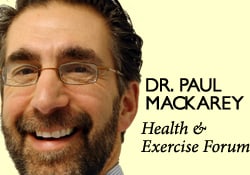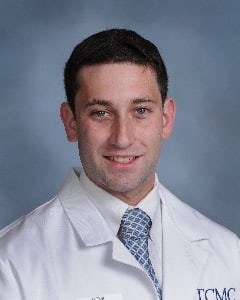 In an effort to address the Keystone State’s growing problem with obesity, TCMC with host the 1st Annual Keystone Program – Obesity Symposium 2013 on April 6, 2013.
In an effort to address the Keystone State’s growing problem with obesity, TCMC with host the 1st Annual Keystone Program – Obesity Symposium 2013 on April 6, 2013.
The World Health Organization has classified obesity as a chronic disease and determined that it is reaching epidemic proportions, not only in the United States, but globally. Moreover, closer to home, the Pennsylvania Department of Health has determined that PA ranks 17th among all states in the country for percentage of obese residents.
The purpose of the symposium is to provide strategies for health professionals and students to prevent childhood and adult obesity recognize risk factors and discuss various treatment options such as behavioral, pharmacological, and surgical.
“Health & Exercise Forum” has dedicated the last two weeks to a topic related to this local, national and international epidemic by Ryan Sugarman, 4th year medical student at TCMC.
 BARIATRIC SURGERY: WHAT YOU NEED TO KNOW
BARIATRIC SURGERY: WHAT YOU NEED TO KNOW
Part 2 of 2
Guest Columnist: Ryan Sugarman, 4th Year Medical Student TCMC
Ryan Sugarman is a 4th year medical student and member of the charter class of The Commonwealth Medical College (TCMC). He was raised in Long Island, NY and earned a Bachelor of Science in Chemistry at Tufts University. He has a special interest in preventive care and has researched diabetic foot care and ways to improve pneumonia vaccination in the Scranton area. Recently he investigated the average one year weight loss of three bariatric procedures performed at Wilkes-Barre General Hospital in Wilkes-Barre, PA. He is currently applying for Internal Medicine residency and plans to complete a fellowship in gastroenterology, nephrology or hematology/oncology after.
Nearly one of three Pennsylvanians is obese, quantified as a Body Mass Index (BMI) > 30. This places them at risk for diabetes, hypertension (HTN) or high blood pressure, obstructive sleep apnea (OSA), and many other diseases. These illnesses may be insidious, festering unnoticed until they cause a stroke or heart failure. While diet and exercise are encouraged, it is often not enough to be effective. In more severe cases, surgical measures should be considered based on specific criteria to be discussed later in this column.
The risks vary depending on the type of bariatric procedure, but every surgery carries a risk of infection, bleeding or death. Fortunately, these surgeries are normally performed laparoscopically, where the surgeon only makes a few tiny incisions on the abdomen and operates insides the abdominal cavity with a camera and several tools, making these risks low.
The gastric band is minimally invasive and has few serious complications. Commonly the band will have to be adjusted because it is either too tight leading to vomiting, or it is too loose rendering it ineffective for weight loss. The band may slip from where it was initially placed necessitating corrective surgery. A more serious complication would be erosion of the band into the stomach, but this is extremely rare.
The gastric sleeve is a more invasive procedure, because it involves the removal of a large portion of the stomach. Common side effects are nausea and vomiting if there is too much food intake. A more serious complication is leakage at the surgical site which would require corrective surgery.
The roux-en-Y gastric bypass has risks of internal hernia, leak, vitamin deficiency and dumping syndrome, which is manifest as diarrhea, constipation, sweating and bloating due to the rapid transit of food through the GI tract. Fortunately, very few patients will suffer a complication if the surgery is performed laparoscopically by an experienced surgeon and supplements and diet instructions are followed.
Novel methods are currently being investigated including procedures that would not involve incisions at all. These endoscopic methods work by placing a tube down the mouth and esophagus and manipulating the GI tract from the inside rather than the outside. One procedure would inflate a balloon in the stomach (causing the patient to feel full), while another would line a portion of the small intestines with a material that blocks absorption.
Unfortunately, at present there are very few medications approved by the Food and Drug Administration for weight loss and their effectiveness pale in comparison to the weight loss achieved by surgery. Perhaps in the future new drugs with better mechanisms of action will be discovered.
Bariatric surgery decreases the risk of cardiovascular disease in the obese and may even reverse some preexisting diseases such as diabetes or hypertension. This accounts for up to 40% long term (7 year) decreased risk of death by any cause! Over the course of a year, more dramatic weight loss is achieved on average with the bypass and sleeve than the band in Wilkes-Barre General Hospital, but these invasive procedures also carry potential risks of serious complications. However, it is important to note that 10 years later, only one of two patients with the gastric band will maintain their weight loss versus 8-9 out of 10 who had the gastric bypass. As the gastric sleeve is relatively new, the long term maintained weight loss is not yet known.
Following the post-operative dietary instructions is critical and must be continued forever to prevent gaining weight again in 3-5-8-10 years. Additionally, participation in moderate exercise 5-7 days per week is an essential component of long term weight control and lifestyle change. Get your physician’s approval and consult with a physical therapist to develop a program specific for your needs. A minimum of 30 minutes of physical activity, 5 – 7 days per week can greatly contribute to weight control and longevity. Researchers have found that the benefits of regular physical activity are numerous. Some of the more important benefits are:
Visit your doctor regularly and listen to your body.
Keep moving, eat healthy foods, exercise regularly, and live long and well!
NOTE: Images in article were reproduced with permission of Dr. Gianfranco Silecchia MD PHD FASMBS, Associate Professor of Surgery at Padiglione Universitario, Rome, Italy.
Read Dr. Mackarey’s Health & Exercise Forum in the Scranton Times-Tribune every Monday
This article is not intended as a substitute for medical treatment. If you have questions related to your medical condition, please contact your family physician. For further inquires related to this topic email: drpmackarey@msn.com
Paul J. Mackarey PT, DHSc, OCS is a Doctor in Health Sciences specializing in orthopaedic and sports physical therapy. Dr. Mackarey is in private practice in downtown Scranton and is an associate professor of clinical medicine at The Commonwealth Medical College.